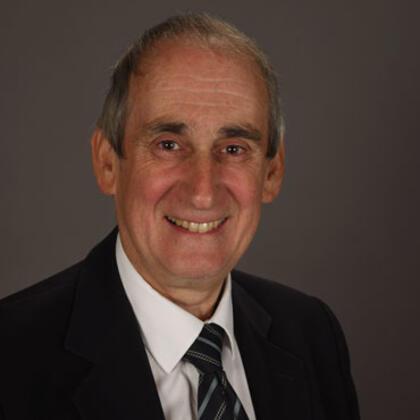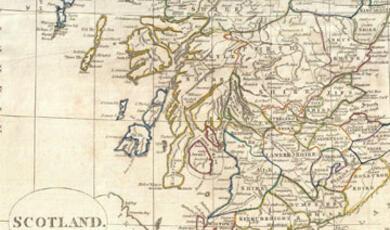15 June 2011
An Introduction to
Rare and Endangered Languages
Professor Tim Connell
Arguably, languages are as old as man, as central to the development of civilisation as the discovery of how to make fire or the move from hunter-gathering to agriculture. Archaeologists study everything from dry bones to the ruins of great cities; different branches of archaeology have sprung up ranging from dendrochronology to palaeoclimatology in order to reach back and find out about the earliest origins of the earth and mankind.[i] Their findings appear regularly on popular TV programmes, and the whole country goes wild at regular intervals over exhibitions at the British Museum.
It is odd therefore (and slightly discouraging) that the same level of interest is not shown towards languages, whether ancient or modern; very remote, like Koro, recently discovered in a Himalayan valley, or for that matter in our own education system.[ii] However, I hope we will discover today that the study of languages great and small, new, old or extinct is of particular importance for a whole variety of good reasons.
Language Ecology
It is not just a question of us teaching languages, so much as what languages have to teach us and although the theme of language death and language loss are now reported more widely, there is not the sense of urgency that we perhaps ought to feel when we realise that half the world’s 6000 – 7000 languages are so endangered that they are unlikely to survive into the next century.[iii] The loss of language is actually heavily linked to biological diversity, the irony being that they are disappearing along with the rainforest and other natural habitats, not to mention the flora and fauna that might contain the medicine to cure a whole range of diseases. The question of sustainability and ecological inter-dependence is as valid for language as it is for other aspects of permanent damage to the environment. The sheer diversity found in different languages, even those located in some proximity to each other, provide us with insights into the human brain and how it works, how the brain responds to its environment, to different social structures, and indeed how human beings react to each other.
The study of a wide range of languages also provides insights into human thought processes. Consider the Amerindian tribe that has no concept of time, as in the case of the Amondawa people of Brazil (first located in 1986) who have no concept of weeks, months or years. This demonstrates that humans do not (as you might imagine) have an in-built concept of the passage of time, which in turn will affect the way in which people refer to the present, past and future. It also suggests that the Amondawa have no need for phrases like burn-out, time-poor or rat race.[iv] They almost certainly don’t use a term like 24/7, but then in our frenetic world even that is changing. I recently heard someone use 7/24 on the radio, which shows how fast our language can move.[v] By contrast we will probably discover that the Amondawa do have words and phrases that reflect their own particular environment and daily lives. If we look around the world, we can see that people make up words to meet their own particular needs. But what do we make of terms such as gagrom, meaning “to search for something underwater by trampling” or gobray “to fall into a well unknowingly”?[vi]
Language hegemony, death and extinction
It may well be true, as the hymn reminds us, that “Crowns and Thrones May Perish, Kingdoms Wax and Wane”[vii] and there are certainly examples of languages, ranging from Hittite to Quechua, which owed their expansion and apparent success to being the imposed language of empire. Indeed, Arabic, English, French, Spanish and Portuguese have all spread well beyond their original borders in modern historical times for that reason.[viii] Lesser known languages in this category include Nahuatl (the languages of the Aztecs in Mexico) and Quechua, spoken by the Incas in Peru. Both languages are still with us today, though very much as languages of the vanquished. The case of Akkadian and Hittite from ancient times is interesting, as they indeed waxed and waned over a long period of time, about 4000 years in the case of Akkadian (up to the 2nd Century AD) and from about 1800 BC to 1300 BC in the case of Hittite. Interestingly enough, Akkadian (the official language of Babylon and Assyria) was widely used at diplomatic levels in places as far apart as Egypt and Persia and so outlived its time as a hegemonic language. It was eventually replaced by Aramaic[ix], as its cursive script made it so much easier to write than the cuneiform writing of Akkadian.[x] And Hittite has left us one of the first peace treaties in the world, between Egypt and the Hittite Empire in parts of modern-day Turkey. It also left a significant literature.[xi]
Writing, as we shall see, is an important element in the survival of a language. The Aztecs, of course, were rather limited with their pictograms and the Incas got tied up in knots quite literally with their pieces of coloured string, used essentially as a mnemonic.[xii] It is said that a dialect is a language with an army and navy. Rather more, a language really needs to be a dialect with a library, able to leave a record if it is to be maintained or even revived; the many oral languages now in decline leave a challenge to linguists in the field (as we shall hear).
There are various grades of language in decline, ranging from endangered, to dead, to extinct. “Endangered” is taken to mean that the number of people who use a particular language regularly in daily life, is not only falling but (like different species of animal) has reached a point where it is not self-sustaining. This can be caused by a number of factors, including ecological change (rivers dry up); natural disaster (displacement by tsunami or earthquake); war and genocide; or everyday migration, as younger people leave and older people begin to pass away. A significant proportion of the endangered languages today have gone way below the level of sustainability, as some kind of hinterland is probably necessary to ensure that people have enough contacts to speak to on a regular basis. In the most extreme cases, the surviving speakers number less than a dozen, and this is where so much work is being done to preserve their knowledge before it is too late (something else we shall be hearing about). Even so, it has been argued that one language is being lost on average every two weeks.[xiii] A language may then be classified as either dead or extinct. The former, in the case of Latin or Ancient Greek, is where the language is not in normal use but is widely studied for a range of purposes, or has survived as a liturgical language, like Coptic in Egypt. “Extinct” means that it is as dead as a parrot and can only be excavated by whatever means.
Language Policy
Official policy can have a major impact on whether or not a language survives, and at the other, more positive end, whether it can be revived – we must not be entirely negative in all this. Ter Sami is a case in point. Today it is spoken by only two elderly people in the Kola peninsula in the north-west of Russia. Yet it still had about 450 speakers at the end of the 19th century only to be prohibited in schools in the 1930s by Stalin and is now virtually lost. In almost the same period, General Franco (first cousin to Stalin...) banned all regional languages in Spain following his victory in the Civil War. Children were punished for speaking Catalan in the playground, and telephone boxes had signs forbidding people to make calls in anything other than Castilian. This, of course, had the effect of driving the language underground, even though newspapers did not re-appear in Catalan until 1978 and book publishing was also banned for a time, whereas Barcelona is, of course, a major centre for the printing industry. Both Basque and Catalan have had the advantage of a revival, or renaissance in the Nineteenth Century, and both had the advantage of being spoken over a large area, which in the case of Catalan spreads into France and even to Sardinia. Catalan had the additional benefit of having a major literature dating from mediaeval times so that it was relatively easy to maintain a level of standardisation in the revived language.[xiv] With the death of Franco, language and language policy became intertwined with the development of regionalist sentiment, with the Normalisation Laws in Catalonia, for example, in the early 1980s, which re-introduced Catalan into the mainstream of public life, to the extent that museums in Barcelona tend to label exhibits in two languages – Catalan and English. Galicia in North-Western Spain has Gallego, which is closely related to Portuguese, and has its own lengthy history. Other regions which do not have a language as such, but who do possess their own linguistic idiosyncracies, like Asturias on the Bay of Biscay, are trying to emphasise their own particular differences, for example with Bable, which is fairly close to a variety of mediaeval Spanish.
The EU provides for mutual recognition and respect for all the languages of Europe however small, although this does raise the inevitable question not only of the increasing cost of translating and interpreting services, but also the practical question of finding people who are fluent in, for example, Maltese or Estonian and another European language other than English. In practice this tends to reinforce English, French and German as the working languages of everyday life.
Of course, language policy might actually be restrictive, as in the case of the Académie Française and the Spanish Real Academia. In the case of the former, it spends a lot of time creating new words with a Gallic flavour, attempting (with little success) to stem the tide of franglais which is steadily sweeping across the language. The area spawning the most novel terms, unsurprisingly is computing and the internet. Some choices, like baladeur for walkman (from balader – to go for a stroll) are a neat, if rather impractical solution. But ardoise for the iPad has met with little success, given that ardoise is the slate that some of us (a hundred years ago) learnt to write on with a piece of chalk. And cédérom for CD-ROM is frankly cheating.[xv]
Language Policy and Revival
Language policy can also have unintended impacts: there is the case of Ayapaneco in the Mexican state of Tabasco[1]. Government policy in the 1980s was to combat the social isolation and economic disadvantages of indigenous communities and draw them into the mainstream of national life, which they tried to do by teaching everybody Spanish, with the result that the local indigenous language became isolated and then began the slow process of disintegration to the point where there are now only two speakers left, and they are not on speaking terms with each other! Younger people have left the area in search of work or a better life. Radio and television are widely accessible and broadcast in Spanish. Classes are now being offered in Ayapaneco to encourage people to revive their ancestral tongue, but there is little incentive if there is no longer a hard core of regular users. It is therefore likely to die out, but at least not before it has been recorded.
Languages need to be nurtured. There are, of course, success stories close to home, like Welsh and there is growing interest in Manx and Cornish, but even in this country the study of languages is under threat as a result of misguided government policy that made languages optional in secondary schools at the age of 14. This has been offset by the introduction of foreign language learning at primary level (as is customary in most European countries now) but enormous damage has been done, especially at university level, where dozens of language departments have been cut or drastically reduced in size in the last decade, which indicates that constant vigilance is needed if languages are to be recognised and understood for the important aspect of personal and professional life that they are.
Concluding points
Language is in a constant state of flux. New languages, in the sense of languages not previously known or identified, emerge at odd intervals in the same way as rare species of plant or animal life are discovered in Papua New Guinea (which can count 850 languages) or Cameroon with a mere 210.[xvi].
Greater interest is being shown in regional languages, such that the French government (which enshrined the French language in its Constitution in 1992) is now recognising the range of languages actually in use within the Hexagon.
Patois, Pidgins and Creoles may well be in the process of emerging, reviving or being identified, even though these face some significant disadvantages such as the general lack of a written form or regular written sources such as newspapers or even a literature; they may be spoken in areas undergoing rapid social change; and they may be considered as an inferior form of communication by government and education agencies. A case in point is Ebonics, the non-standard variety of English spoken by black communities in the United States,[xvii] a phenomenon that reflects current interest in the possibility of forms of Creole English emerging in London schools as children mix from a wide range of linguistic backgrounds and come to grips in a short space of time with the complexities of English grammar.[xviii]
Language also has to adapt to current circumstances. I bet none of the people who speak Spanish here today will understand any of the following: 15-M, Acampada, Indignados. This is because all three terms refer to political events which began on the 15th May this year (hence 15-M) when demonstrators (known as the indignados because they are indignant about government policy and the current economic situation) set up a protest camp (la acampada) in Madrid's Peurta del Sol. All three terms may be forgotten within six months as political life moves on. But they do serve a particular purpose - if you are following current affairs in Spain.
Can we blame English?
We must actually recognise that even English comes under pressure at times (though whether it really survived the American War of Independence is another matter). George Washington and General Cornwallis probably spoke in a similar fashion, as did the troops on either side (excluding the mercenaries from Brunswick, of course.) Bill Bryson gleefully reminds us that base Americanisms like “talented” or “jeopardy”, or ghastly words like “normalcy” that set English teeth on edge, do in fact have their roots in England.[xix] In recent weeks, however, with the e.coli outbreak, I have heard “to-mayto” twice on television from EU officials, so it is only a matter of time before we will be hearing about the dreaded Euro po-tahto.
We may of course have to accept that English itself is an endangered language. It seems unlikely given the speed of telecommunications and the pace of inter-connectivity that the language will fragment, as Robert Birchfield feared in the 1980s, and as Nicholas himself argues in a recent book.[xx] But we will have to accept that the Queen’s English, BBC English, Proper English even, will be spoken by fewer and fewer people, as the number of people for whom English is a form of communication rather than a foreign language greatly exceeds those who have spoken it from birth. But language, despite our concerns today, is a living entity, and whereas Jane Austen would have come up with a phrase like. “But I did do that, did I not Mr Darcy?” in the streets of South London today you are more likely to hear, “Yeah well, I dunnit, din’t I?” or even the dreaded, “I dunnit, innit?” which is, after all, little different from the French n’est-ce pas, or the Spanish ¿verdad?- simply an interrogative affirmative.
The march of English at international level, even so, seems to be all-pervading, and some might even say insidious. Thirty years ago, my brother was driving across Greece and commented on the fact that all road signs were in Greek. Ten years later, when I was there, I noticed that all the road signs from Athens to Glifada (a popular tourist route) were only in Roman script. But then areas such as road safety might well call for easy recognition, and preferably using international symbols rather than words. I recall steering round a corner once in Haifa harbour (I was in a car, not a boat) when I saw a road sign in Hebrew. I had no idea what it meant, but found out about two seconds later as I came round the bend – and nearly went straight into thirty feet of water.
So for maritime as well as air communications safety needs to be paramount. New versions of English have had to be devised to ensure mutual communication both at sea and in the air, often via poor quality signals and quite possibly in the face of an impending emergency.[xxi] Hybrid artificial forms of English, such as Airspeak and Seaspeak, designed to ease communications in what can be critical situations, have been around for thirty years and more. And of course it is probable that neither speaker of Airspeak nor Seaspeak will have a native command of English. However, it is the second language most likely to have been studied, and its position is reinforced by the fact that international conferences are inevitably in English (though the local language may also be accepted) and any ensuing publications will be in English too.
Does this mean that the march of English is unstoppable, and will that weaken far larger and more important languages than many of the ones we have mentioned today? A widely-held body of opinion is that this is unlikely to be the case and that the hegemony of English may not be as clear-cut and certain as we might fondly imagine. What perhaps makes us stand out in the UK is the monolingual nature of our society, in marked contrast to many countries where bi-lingualism is the norm. Some countries such as South Africa far exceed this situation, with no fewer than eleven official languages. Multi-lingual websites, electronic information screens and telephone interpreting services mean that people can in fact access data more easily and even communicate in any variety of languages. As the world gets smaller, this may in fact become a positive process for languages, and the dominance of a single language may not be the long-term outcome.
For smaller language communities, threatened by the impact of migration, increased access to telecommunications and the decline of local populations, the long-term perspective is not positive. But as we have heard, efforts are being made increasingly to ensure that the linguistic wealth of the world’s population will not be entirely lost, and that could be one positive story in global ecology.[xxii]
[1]See The Guardian for 13.4.2011. http://www.guardian.co.uk/world/2011/apr/13/mexico-language-ayapaneco-dying-out
[i]Dendrochronology is used to establish dates by the study of tree ring patterns.
[ii]Metro 7 October 2010.
[iii]David Crystal (2000) Language Death – and countless articles and lectures.
[iv]www.bbc.co.uk/news/science-environment-13452711. It was also reported in The Times.
[v] Heard on Radio 4 5/6/11 (not 6/5/11!) Putting the month first is standard American practice, reinforced by the default settings on Microsoft products, and embedded in the language with 9/11 for the 11th September 2001. 7/7 by contrast (the London bombings of 2005) left the language in a neutral position.
[vi]Quoted in Mark Abley (2003) Spoken here: travels among threatened languages,Heinemann.
The Meaning of Tingoand other extraordinary words from around the worldby Adam Jacot de Boinard provides many curious examples. Penguin 2005.
[vii] “Onward Christian Soldiers”, of course.
[viii]It is often forgotten that Portuguese is widely spoken in Africa and the Atlantic islands as well as Brazil, making it the sixth largest language in the world with in excess of 250 million speakers.
[ix]Aramaic, the language spoken by Jesus Christ, is still in use today in small communities in Turkey and Syria. See Kenneth Kratzner (1995) The Languages of the World, Routledge, page 165.
[x] See Peter Austin (2008) 1000 Languages (Thames & Hudson). Highly informative, it makes for very good browsing!
[xi]See Austin (2008) page 248.
[xii]For more on the quipu see http://archaeology.about.com/od/qterms/qt/quipu.htm
[xiii]See Andrew Dalby (2002) Endangered Languages, Penguin.
[xiv] Despite that, of course, there are significant regional differences even in a fairly small geographical area, especially if one includes Valenciano and the languages of the Balearic Islands, not to mention the Vall d’Aran which you will only find on a large-scale map.
[xv]The Times February 26 2011.
[xvi]Jacot de Boinard 2005 page 184
[xvii]Also known as African American Vernacular English, it is a prime example of language related to identity politics. See http://linguistlist.org/topics/ebonics/
[xviii]See http://www.bbc.co.uk/voices/multilingual/creole.shtml for more on this.
[xix]Bill Bryson (1990) Mother Tongue chapter 11.
[xx] Nicholas Ostler (2010) The Last Lingua Franca: English until the return of Babel. Allen Lane.
[xxi]The fatal rail crash at Pécrot in Belgium in 2001 is a case in point – where one French-speaking railwayman could not understand a Flemish-speaking one. See http://en.wikipedia.org/wiki/P%C3%A9crot_rail_crash.
[xxii]And thanks to the Hans Rausing Endangered Languages Project at SOAS, (http://www.hrelp.org/) the Foundation for Endangered Languages (http://www.ogmios.org/) and the World Oral Literature Project at Cambridge (http://www.oralliterature.org/) for their contribution today.
© Tim Connell, 2011


 Login
Login







